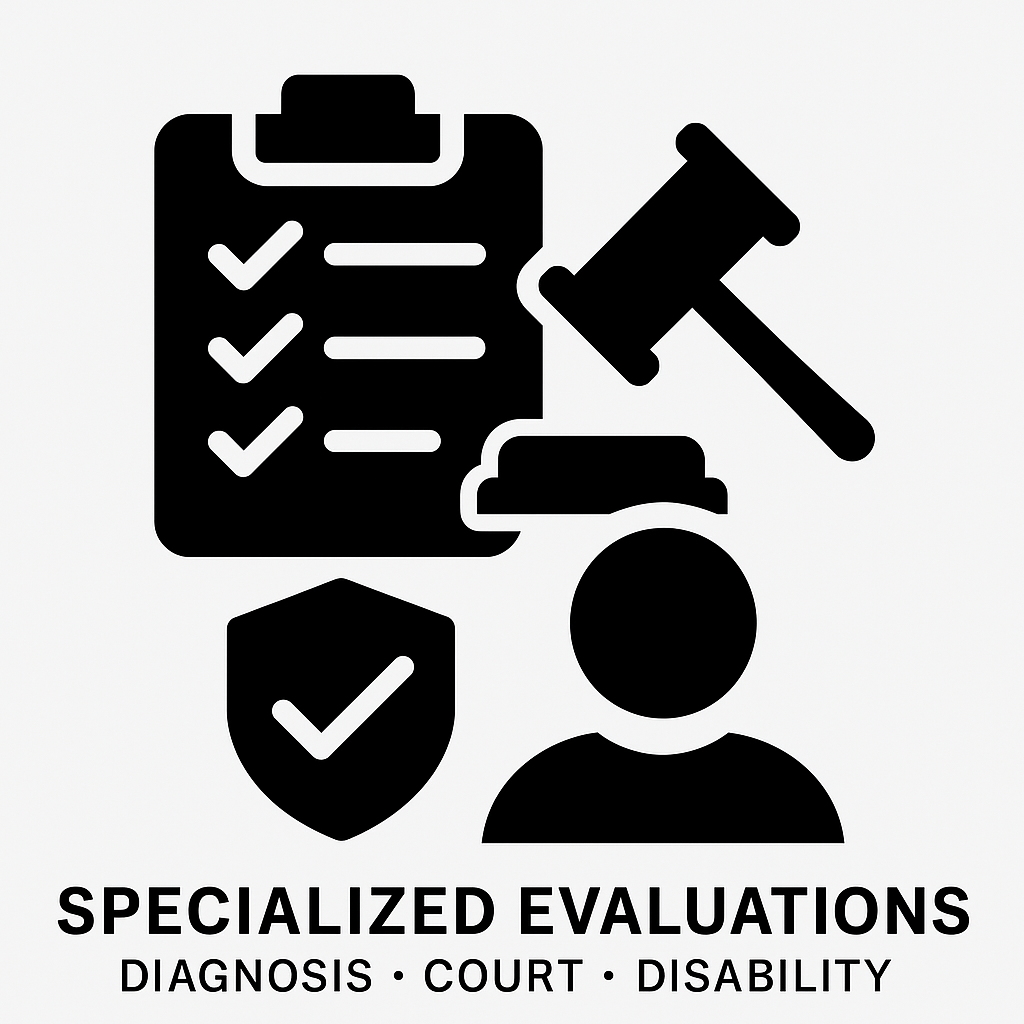At Cheryl L. Andrews & Associates, we are dedicated to helping people and organizations navigate complex clinical, vocational, and legal challenges with confidence and clarity.
Our services are grounded in evidence-based practice, person-centered care, and an unwavering commitment to ethical excellence.
Whether you’re a clinician seeking supervision, an individual in need of evaluation or accommodations, an employer supporting your workforce, or a legal professional requiring expert consultation — we provide guidance that is informed, compassionate, and tailored to your specific goals.
With deep experience across clinical mental health, rehabilitation counseling, disability evaluation, and vocational expertise, we bring a multidisciplinary perspective to every client relationship.
Our approach integrates professional insight, collaboration, and integrity — ensuring that each service is designed not only to meet requirements but to create meaningful outcomes.
Explore our range of services below to learn how we can support your next step forward.
Our Services
-

Clinical Supervision
Guidance for Early-Career Clinicians
Clinical supervision is more than oversight — it’s a professional relationship that fosters growth, competence, and ethical confidence.
I provide structured, supportive supervision for associate-level counselors working toward independent licensure. Sessions are collaborative, reflective, and focused on developing both clinical skills and self-awareness.Supervision includes:
Case conceptualization and treatment planning
Ethics, boundaries, and legal considerations
Diagnostic formulation and documentation
Clinical interventions and counseling techniques
Professional identity development and self-care
Supervision sessions may be individual or group-based, tailored to meet your licensure board’s requirements in North Carolina, South Carolina, and Georgia. Virginia - Coming soon.
-

Specialized Evaluations
Objective, Comprehensive, and Credible Assessments
I offer comprehensive evaluations that integrate clinical, psychological, and vocational perspectives. My reports are detailed, clearly written, and designed for both therapeutic and legal utility.
Common evaluation types include:
Clinical diagnosis and treatment recommendations
Court-ordered evaluations (mental health, competency, or mitigation)
Disability determination (SSA, private, or insurance-based)
Independent psychological or vocational assessments
All evaluations adhere to professional ethics, evidence-based practices, and applicable legal standards, ensuring clarity and credibility for individuals, attorneys, and agencies.
-

Educational & Vocational Accommodations
Supporting Access, Inclusion, and Success
Navigating accommodations can be complex — whether in school, higher education, or the workplace. I work collaboratively with individuals, families, educators, and employers to develop effective support plans that align with IEP, Section 504, or ADA standards.
Services include:
Psycho-educational or functional assessments for accommodation eligibility
Documentation and report preparation to support IEP or 504 planning
Consultation for ADA workplace accommodations and return-to-work plans
Collaboration with educational teams, HR departments, or rehabilitation services
My focus is to help every individual access their environment fully and equitably, while guiding institutions toward compliance and compassion.
-

Vocational Planning
Creating Pathways to Meaningful Work
Employment is a critical part of well-being. For individuals with intellectual or developmental disabilities (IDD) or mental/behavioral health conditions, vocational success depends on thoughtful, personalized planning.
I work closely with clients, caregivers, and support teams to create individualized vocational plans that align with strengths, interests, and goals.
Vocational planning may include:
Functional skills and interests assessment
Career exploration and goal-setting
Job readiness and transition planning
Coordination with supported employment and rehabilitation programs
Employer education and follow-up consultation
The process emphasizes empowerment, inclusion, and sustainable employment outcomes.
-

Vocational Expert & Legal Consultation
Expert Insight for Legal and Administrative Contexts
As a vocational expert, I provide professional consultation, analysis, and testimony related to work capacity, employability, and disability matters. My opinions are grounded in data, ethical practice, and years of experience across clinical, rehabilitation, and legal settings.
Services include:
Vocational analysis and employability opinions for Social Security hearings
Expert witness testimony in administrative or court proceedings
File review and case consultation for attorneys or insurers
Workplace assessments and return-to-work recommendations for employers
Whether in collaboration with legal professionals or as part of SSA proceedings, I provide reliable, impartial, and clearly articulated vocational evidence.
